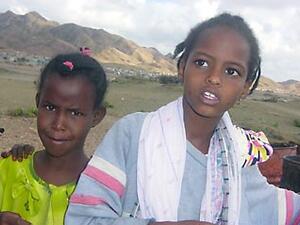UNHCR protests forced return of refugees from Rwanda
UNHCR protests forced return of refugees from Rwanda
5 September 2002
GENEVA - High Commissioner Ruud Lubbers today expressed UNHCR's "grave concern" over the apparent forced repatriation of some 1,500 Congolese refugees by the Rwandan government.
In a letter to Rwandan President Paul Kagame protesting the ongoing repatriation from refugee camps in northern and western Rwanda, Lubbers said UNHCR would not be associated with the operation, which "appears to be neither voluntary nor sustainable."
Since Saturday (31 Aug.), nearly 1,500 refugees have been forcibly returned in four separate movements to north Kivu in the eastern Democratic Republic of Congo (DRC). The movements - organised jointly by the government of Rwanda and the rebel group, Congolese Rally for Democracy (RCD-Goma) - are continuing.
Lubbers asked the government of Rwanda to end the ongoing forced repatriation, which violates the principle of non-refoulement, one of the core pillars of refugee protection. His letter came within days of a meeting with the government in which UNHCR had urged the authorities to respect the principles of voluntary return.
"Such practices [forced return] are at variance with the basic principles of voluntary repatriation, whereby refugees must be able to make a free and informed decision to return," Lubbers said. "Moreover, such return should not result in a situation of internal displacement due to continuing insecurity in the country of origin."
UNHCR said the Congolese refugees - from Gihembe refugee camp in Byumba Prefecture and from Kiziba in Kibuye Prefecture - were pressured into returning to the Masisi region, an area controlled by the rebel group, RCD-Goma. There are concerns that the returnees are being taken to camps for displaced people in north Kivu.
Refugees in Gihembe camp reported that Rwandan authorities had warned them that this was their last chance to return home with assistance. Others said they had been threatened with forcible removal should they decline to leave. Local authorities in Byumba were said to have given the refugees a 15 September deadline to return home. Lubbers said reports from UNHCR staff, NGOs and refugees "clearly indicate that these return movements are being carried out under duress."
"I must share you with my grave concern over these developments, and request you to bring the ongoing forced repatriation movements to an end," Lubbers wrote.
Citing security and other concerns, groups of refugees approached UNHCR asking the agency to intercede with the government to allow them to stay in Rwanda. The refugees are, however, increasingly reluctant to speak to UNHCR for fear of arrest.
By Tuesday, scores of refugees in Gihembe camp had begun to dismantle their homes in order to sell the plastic sheeting and timber from their huts before departure. Several families who had already dismantled their shelters were sleeping outdoors and had gathered at an entrance to the camp awaiting transport to north Kivu. Officials from the Rwandan Ministry of Local Government were present in both camps and were supervising the loading of trucks.
Between them, Gihembe and Kiziba camps accommodate a total of 31,923 refugees. The Congolese refugees, also known as the Banyamulenge, are mainly ethnic Tutsis from the Kivu region. They arrived in Rwanda between 1995 and 1996 to escape persecution by Hutu "interahamwe" militias who had fled from Rwanda to the Kivu region in the wake of the 1994 genocide in Rwanda and the take-over by the Rwandan Patriotic Front (RFP).
Rwanda is host to 35,800 refugees, mainly from the Democratic Republic of Congo.



